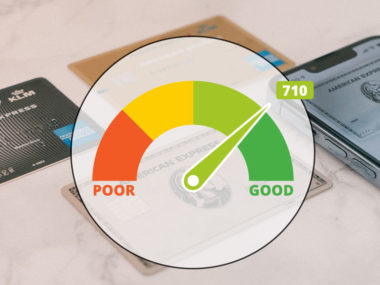Finding that special person to start a business with can be overwhelming. Hopefully, you’re able to turn to a relative, a spouse, or a friend to help you achieve your dream, but not everyone is so lucky. Plenty of people end up trusting a relative stranger with their financial futures, and this can be just as risky as it sounds. Make no mistake, business partners are linked to each other longer than they are to the business itself. Yes, you will carry similar memories and experiences, but your finances — and your credit score — can be deeply impacted for long after you decide to split ways, which is why it’s so important to pick the right person.
However, sometimes it can be difficult to know what to look for, or maybe your business partner actively deceived you into believing that they were a prime candidate. Either way, if you’re suddenly up a creek without a paddle (or even a boat), you might not realize that the experience will affect you long after you get out of the water. Reversing mistakes made by your business partner can be an all-consuming tasks precisely because of how intricately you two are tied.
Business partners likely have access to a shared account, your business credit card, any recurring orders you place, and, of course, your credit. And while most people can put together how to replenish an empty account (save up again) or cancel their business credit card, fixing your credit after your business partner ruins it… well, that’s a head-scratcher for even the most seasoned entrepreneur.
Why is it So Complicated?
Feel free to skip over this section if you’ve found yourself in this situation, because then you’ll know exactly why it’s so difficult. However, if you’re afraid of being in this situation later (more likely), continue on.
First of all, if your credit has been damaged because of the actions of your business partner, they were likely at least an authorized user on a shared card, meaning you’ll still be held liable for any excess charges. You might just be a co-signer on a loan, but you’ll still be held liable for any missed payments, defaults, or over-utilization of credit. You and your business partner might have agreed that they were responsible for paying off a credit card or loan you’d taken out, but you’ll still be held liable for these charges. See the pattern here?
Because of the nature of your relationship with your business partner, any control that they have over your finances and your credit, you probably consented to. While your business partner is clearly not being responsible, you entered into a voluntary agreement to give them this level of control. Unless your partner’s actions sink to the point of illegality, in which case you can file for fraud, reversing the damage done to your credit can be extremely taxing.
So What Can I Do?
Well, the first thing you need to do is figure out how to dissolve any financial dependency you have on this person. Depending on the degree of damage that he or she has done, a complete disillusionment might be necessary. The specifics will be determined by your state’s law, so make sure you look up that exact process before moving forward. You might need to hire a lawyer. If you continue your business association with this person, you run of risk of ruining your credit even further.
Additionally, you ought to consider consulting a credit repair service. While this situation will certainly affect your business credit score, it will also affect your personal score too. Fixing both of them can be overwhelming, and credit bureaus aren’t going to go out of their way to help you repair your credit. A credit repair service will know the nuances and bureaucratic procedures that can be exploited to get your credit back up, including writing dispute letters to loans you aren’t responsible for. You are guaranteed some protections under the Credit Repair Organization Act, so as long as you do your research on the credit repair company, you won’t get scammed a second time.
If you don’t intend to completely separate from your business partner, that brings another level of complication into the mix. While it might seem that continuing your partnership makes things easier, you still need to prevent your credit score from continuously plummeting. Rework any credit cards or shared accounts to limit your co-liability. This might mean completely separating your bank accounts or just opening a joint account that requires both your signatures to withdraw any money. This is the route that some business owners decide to go; they see completely withdrawing their business involvement as an overreaction. If the shared business is your sole source of income, this might be the case, but it ultimately depends on how badly you got burned.
For more tips and guides, visit our small business resource center or credit score resource center.
Image Source: https://depositphotos.com/





